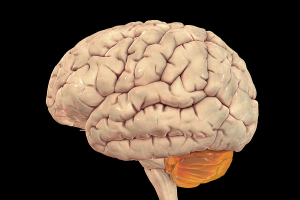by
John R. Fischer, Senior Reporter | May 20, 2022

AI-enabled ECG may detect risk of stroke and cognitive function in people who are at risk for atrial fibrillation.
AI-enabled ECG algorithms may be able to detect more than just risk of atrial fibrillation, but stroke and cognitive decline as well.
One-third of ischemic strokes are associated with atrial fibrillations and can affect a person’s cognitive functioning. In previous studies, AI-enabled electrocardiography has identified brief episodes of atrial fibrillation and been able to predict the risk of it by up to 10 years prior to a clinical diagnosis.
Researchers at Mayo Clinic have now found that the technology may also be able to identify patients who are greater risk of cognitive decline. The algorithm showed that a high probability of atrial fibrillation was connected with the presence of infarctions (incidents of cerebral stroke) on MR.



Ad Statistics
Times Displayed: 46728
Times Visited: 1411 MIT labs, experts in Multi-Vendor component level repair of: MRI Coils, RF amplifiers, Gradient Amplifiers Contrast Media Injectors. System repairs, sub-assembly repairs, component level repairs, refurbish/calibrate. info@mitlabsusa.com/+1 (305) 470-8013
The name of the study is
Artificial Intelligence-Enabled Electrocardiogram for Atrial Fibrillation Identifies Cognitive Decline Risk and Cerebral Infarcts. “Artificial intelligence-enabled electrocardiography acquired during normal sinus rhythm was associated with worse baseline cognition and gradual decline in global cognition and attention. The findings raise the question whether initiation of anticoagulation is an effective and safe preventive strategy in individuals with a high AI-ECG algorithm score for reducing the risk of stroke and cognitive decline,” said Dr. Jonathan Graff-Radford, a Mayo Clinic neurologist and the study's corresponding author.
Assessing sinus-rhythm ECGs of 3,729 patients, the authors found that ECG atrial fibrillation scores correlated with a lower baseline and faster decline in cognitive scores. One-third of patients also had an MR, and cerebral infarcts detected with it were linked to high atrial fibrillation probability.
The authors adjusted for demographic factors in their findings and said that more prospective controlled studies like this are needed to show if a high atrial fibrillation score on AI-enabled ECGs is a biomarker for identifying patients for anticoagulation or more aggressive stroke risk factor modification.
Patients had a median age of 74 years and were enrolled in the Mayo Clinic Study of Aging between 2004 and 2020. "Application of this AI-ECG algorithm may be another way to screen individuals not only to determine risk of atrial fibrillation, but also to identify future risk of cognitive decline and stroke," said Graff-Radford.
The research was supported through grants issued by the National Institute on Aging and the National Institutes of Health, and was made possible by the Rochester Epidemiology Project.
The findings were published in
Mayo Clinic Proceedings.

